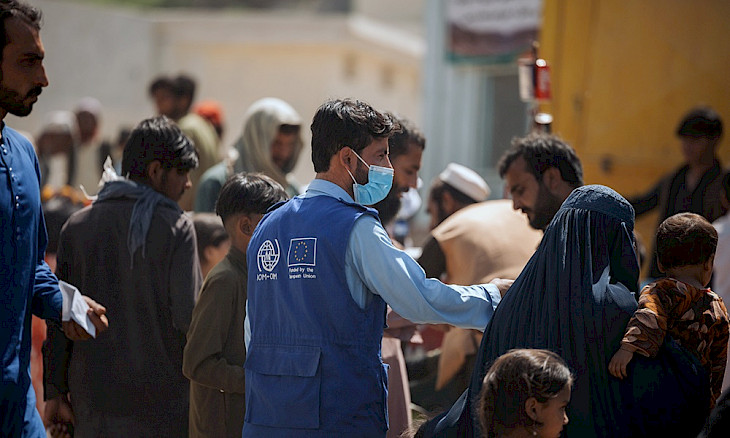The United Nations Assistance Mission in Afghanistan (UNAMA) has issued a stark warning over a rapidly deteriorating humanitarian crisis, driven by the mass return of Afghan migrants from neighboring countries. According to UN figures, nearly 949,000 people have returned to Afghanistan in the first half of 2025 - including 741,000 from Iran and 208,000 from Pakistan.
In a statement reported by Ariananews.af, UNAMA linked the recent spike in deportations - over 283,000 from Iran in June alone - to increased security measures amid escalating tensions between Iran and Israel.
UNAMA cautioned that border communities are overwhelmed and unable to cope with the sudden influx. “Without immediate and coordinated international support, the situation could spiral into a humanitarian catastrophe,” the mission warned.
Unlike previous waves, the majority of returnees this year are families - over 60% are women, children, and the elderly. Many lived abroad for years and return with no shelter, income, identification, or support networks. Some children have never set foot in Afghanistan before.
Conditions are particularly dire in the western provinces of Herat and Nimroz, where a lack of clean water, healthcare, and housing has pushed local authorities and humanitarian groups to the brink. Makeshift tent camps have appeared, and tensions with host communities are growing due to competition over food, shelter, and jobs.
UNAMA is calling on donors, humanitarian organizations, and international financial institutions to urgently mobilize resources. The agency also stressed the need for long-term reintegration programs, including access to education, employment, legal aid, and psychosocial support to prevent repeated displacement.
The crisis is compounded by overlapping challenges - the long-term impact of war, a collapsing economy, extreme poverty, and the lack of international recognition of the Taliban-led government. According to the UN, 28.3 million people - over two-thirds of Afghanistan’s estimated 36 million population - will require humanitarian aid in 2025.
Funding for international aid programs has sharply declined, as many donors have scaled back involvement due to political tensions with the Islamic Emirate. As a result, food rations and essential health and education services have been cut across the country.
“The international community cannot afford to look away,” a UNAMA official said. “Hundreds of thousands of vulnerable families urgently need support to avoid disaster.”
CentralasianLIGHT.org
July 9, 2025

